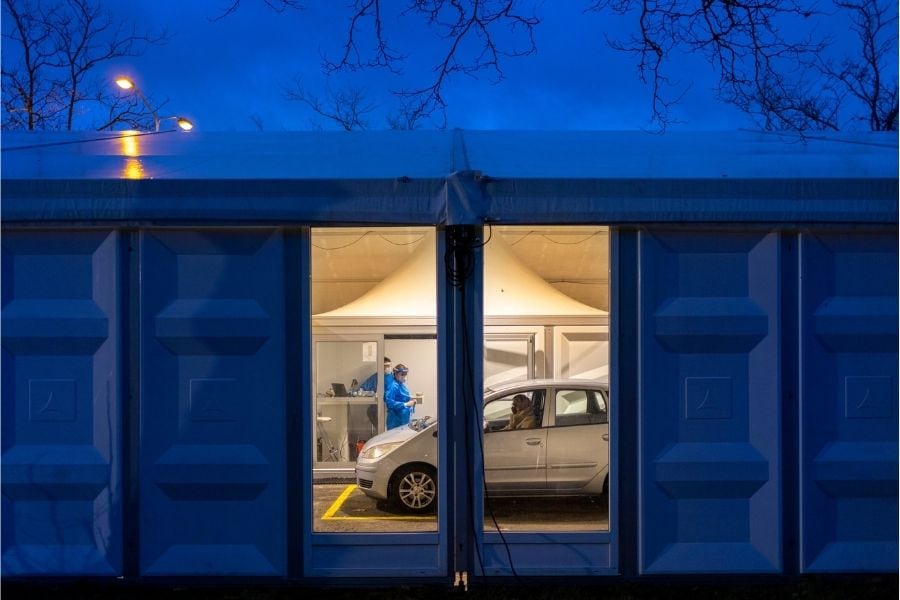
UK and US Officials Spar Over 'Vaccine Nationalism'
Scientists warned that a debate over which country's regulatory system is better could undermine public faith in vaccines. Meanwhile, Britons waited to learn how soon they can get coronavirus shots
 A drive-through site for high-speed coronavirus testing in Eindhoven, the Netherlands, Dec. 1, 2020. The European Union medical regulator is to hold a key meeting on the vaccine on Dec. 29
A drive-through site for high-speed coronavirus testing in Eindhoven, the Netherlands, Dec. 1, 2020. The European Union medical regulator is to hold a key meeting on the vaccine on Dec. 29
Image: Ilvy Njiokiktjien/The New York Times
British and U.S. officials sparred Thursday over how Britain had beaten the United States to authorizing a coronavirus vaccine, a debate touching on politics and regulatory styles that has heated up as wealthy countries vie to receive the first shipments of vaccines.
In Britain, the euphoria of winning the global race to authorizing the Pfizer-BioNTech vaccine was quickly giving way to a more sober realization of the choices facing the country’s National Health Service as it tries to deliver the first doses into people’s arms by Monday.
Nursing home residents, who had been named the government’s top priority, have fallen down the list. Doctors and nurses were expecting to be vaccinated first, but those plans appeared to be in flux. Meanwhile, the government pleaded with people not to call hospitals to ask for a shot.
The question of whether Britain had authorized a vaccine in haste on Wednesday, or the United States was wasting valuable time as the virus was killing about 1,500 Americans a day, has divided scientists and has also drawn in politicians. Facing criticism from U.S. and European regulators, British officials boasted of the decision on Thursday, with one lawmaker suggesting the Europeans were “a bit sniffy” and others misleadingly crediting Brexit.
“We’ve obviously got the best medical regulators,” Gavin Williamson, Britain's education secretary, said in a radio interview, by way of explaining why Britain had become the first Western country to authorize a vaccine. “Much better than the French have, much better than the Belgians have, much better than the Americans have. That doesn’t surprise me at all because we’re a much better country than every single one of them, aren’t we.”
©2019 New York Times News Service




